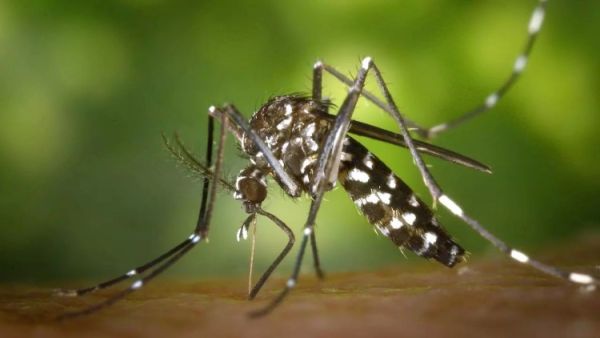
According to physicians, Delhi has seen a significant increase in the number of cases of dengue, swine flu, and chikungunya. According to the Municipal Corporation of Delhi (MCD) report, from September 22 to September 28, 401 new illnesses were detected in the area. According to the data, Delhi had 1,052 cases of dengue up until September 28. The South Delhi zone had the most instances, followed by the Najafgarh zone.

“Dengue and swine flu cases have been steadily rising over the past few weeks,” Dr. Sharang Sachdeva, Senior Consultant and Head of Emergency at Aakash Healthcare, said in an interview with IANS. Currently, we see around 100 patients a day who come in with symptoms including body pains, exhaustion, and fever.
“Among these, 10–25% are diagnosed with swine flu and 20–25% with dengue, indicating a concerning overlap of multiple infections during this period,” he said.
There has only been one dengue-related fatality recorded this year, at Lok Kalyan Hospital, where a 54-year-old patient passed away from the illness.
“There might be few spikes in vector-borne diseases such as dengue and chikungunya because the season is favourable for mosquito breeding,” Dr. Harshal R. Salve, additional professor at AIIMS, New Delhi, told IANS.
Concurrently, the MCD data indicates a notable rise in the number of cases of chikungunya (13) and malaria (67) over the period of September 22–28. As of September 28 of this year, there have been around 430 cases of malaria reported, as opposed to 321 occurrences at the same time in 2023. The number of Chikungunya cases has also increased; over the same time this year, 55 cases have been recorded, compared to 24 cases during the same period last year.
The commonality of these illnesses’ symptoms makes diagnosis challenging. But as dengue worsens, unique symptoms including excruciating headaches, discomfort behind the eyes, pains in the joints and muscles, and rashes start to show, according to Dr. Sachdeva. More severe dengue instances may result in easy bruising, bleeding from the gums, or both.
How to Avoid Chikungunya and Dengue
Get rid of standing water
Particularly Aedes species of mosquitoes breed in still water. Empty buckets, tires, and flowerpots on a regular basis.
Employ mosquito netting
Use insecticide-treated bed nets while you sleep, particularly in locations where mosquito activity is high. For newborns and young children, this works well.
Put in door and window screens.
Use fine-mesh screens on windows and doors to keep mosquitoes away. Fill in any gaps or holes.
Put on safety gear.
Wearing long sleeves, trousers, and socks may help shield your skin from mosquito bites, particularly in the early morning and evening when mosquito activity is at its highest.
Put on insect repellant.
Use repellents like DEET, picaridin, or oil of lemon eucalyptus that have been authorized by the EPA. For extended protection, apply to clothes and exposed skin.
Make use of vaporizing mats or mosquito coils.
Use them to keep mosquitoes away from you while you’re inside. Maintain enough ventilation to reduce the danger of inhalation.
innate predators
To lessen mosquito larvae, stagnant water sources might be filled with fish, such as guppies or species that are larvivorous.
Tidiness
Participate in neighborhood cleanup initiatives aimed at clearing up open drains and other possible breeding habitats, as well as emptying abandoned containers.